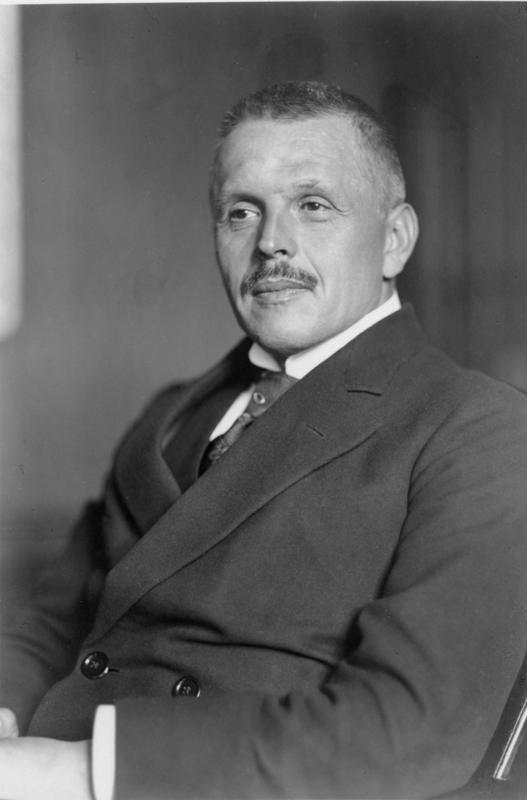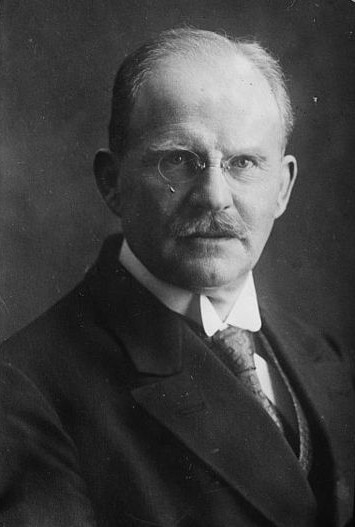Third Marx Cabinet on:
[Wikipedia]
[Google]
[Amazon]


 The Third Marx cabinet (German: ''Drittes Kabinett Marx'') was the 14th democratically elected ''Reichsregierung'' of the
The Third Marx cabinet (German: ''Drittes Kabinett Marx'') was the 14th democratically elected ''Reichsregierung'' of the


 The Third Marx cabinet (German: ''Drittes Kabinett Marx'') was the 14th democratically elected ''Reichsregierung'' of the
The Third Marx cabinet (German: ''Drittes Kabinett Marx'') was the 14th democratically elected ''Reichsregierung'' of the German Reich
German ''Reich'' (lit. German Realm, German Empire, from german: Deutsches Reich, ) was the constitutional name for the German nation state that existed from 1871 to 1945. The ''Reich'' became understood as deriving its authority and sovereignty ...
, during the period in which it is now usually referred to as the Weimar Republic
The Weimar Republic (german: link=no, Weimarer Republik ), officially named the German Reich, was the government of Germany from 1918 to 1933, during which it was a constitutional federal republic for the first time in history; hence it is al ...
. The cabinet was named after ''Reichskanzler'' (chancellor) Wilhelm Marx
Wilhelm Marx (15 January 1863 – 5 August 1946) was a German lawyer, Catholic politician and a member of the Centre Party. He was the chancellor of Germany twice, from 1923 to 1925 and again from 1926 to 1928, and he also served briefly as the ...
and was in office for only seven months. On 17 May 1926 it replaced the Second Luther cabinet
The Second Luther cabinet (German: ''Zweites Kabinett Luther'') was the 13th democratically elected ''Reichsregierung'' of the German Reich, during the period in which it is now usually referred to as the Weimar Republic. The cabinet was named ...
after the resignation of Hans Luther
Hans Luther () (10 March 1879 – 11 May 1962) was a German politician and Chancellor of Germany for 482 days in 1925 to 1926. As Minister of Finance he helped stabilize the Mark during the hyperinflation of 1923. From 1930 to 1933, Luther was h ...
on 13 May 1926. Marx resigned with his cabinet on 17 December 1926 but remained in office as caretaker. He formed another government on 29 January 1927.
Establishment
Chancellor Hans Luther had resigned on 13 May 1926 following a controversy over the use of the ''Reichsflagge'' and refused to remain in office as caretaker. Deputy-ChancellorOtto Gessler
Otto Karl Gessler (or Geßler) (6 February 1875 – 24 March 1955) was a liberal German politician during the Weimar Republic. From 1910 until 1914, he was mayor of Regensburg and from 1913 to 1919 mayor of Nuremberg. He served in numerous We ...
thus stepped in for him and was asked by president Paul von Hindenburg
Paul Ludwig Hans Anton von Beneckendorff und von Hindenburg (; abbreviated ; 2 October 1847 – 2 August 1934) was a German field marshal and statesman who led the Imperial German Army during World War I and later became President of Germany fro ...
to form a new government. However, the SPD
The Social Democratic Party of Germany (german: Sozialdemokratische Partei Deutschlands, ; SPD, ) is a centre-left social democratic political party in Germany. It is one of the major parties of contemporary Germany.
Saskia Esken has been t ...
was unwilling to tolerate a minority cabinet led by him. The parliamentary group of the Zentrum then asked Konrad Adenauer
Konrad Hermann Joseph Adenauer (; 5 January 1876 – 19 April 1967) was a Germany, German statesman who served as the first Chancellor of Germany, chancellor of the Federal Republic of Germany from 1949 to 1963. From 1946 to 1966, he was the fir ...
, mayor of Cologne, to come to Berlin. However, Adenauer was unwilling to build a temporary minority cabinet as a stepping stone to an eventual grand coalition and aimed at the creation of a majority government, including the SPD. For the DVP DVP may refer to:
* ''decessit vita patris'', "died in the lifetime of his father", term used by genealogists to denote a child who pre-deceased his or her father and did not live long enough to inherit the father's title or estate.
* Delivery versu ...
, parliamentary leader refused to entertain the idea of a coalition with the SPD for the foreseeable future, due to domestic policy disagreements. He would rather see a move to include the DNVP
The German National People's Party (german: Deutschnationale Volkspartei, DNVP) was a national-conservative party in Germany during the Weimar Republic. Before the rise of the Nazi Party, it was the major conservative and nationalist party in Wei ...
in a future government and as a possible stepping stone in this direction the formation of a "neutral" technocratic cabinet with no links to the SPD. Adenauer thus gave up within a day of having started the talks (15 May).
That same day, during a meeting of the caretaker cabinet, Gustav Stresemann
Gustav Ernst Stresemann (; 10 May 1878 – 3 October 1929) was a German statesman who served as chancellor in 1923 (for 102 days) and as foreign minister from 1923 to 1929, during the Weimar Republic.
His most notable achievement was the reconci ...
mentioned Minister of Justice Marx as a potential new chancellor. In the evening, Hindenburg asked Marx to form a new cabinet. Before the Zentrum was willing to agree, they asked the DVP for clarification regarding the outlook for a majority government being eventually formed. The parliamentary groups of the two parties came to an agreement on 16 May. This stated the intent of both sides to expand the coalition as soon as possible to a Reichstag majority. However, only parties would be considered that accepted the binding nature of current international agreements and who supported the current foreign policy stance. This satisfied both parties: the DVP could hope for an eventual compromise on the part of the DNVP regarding their opposition to Stresemann's foreign policy which would allow their inclusion in the government. DDP and Zentrum viewed the new minority government as a stand-in until a majority one could be formed including the SPD.
Only a day later a new cabinet was formed. All the ministers of the Second Luther cabinet kept their positions. Marx left the Justice and Occupied Territories portfolios vacant (with himself as caretaker) in case the grand coalition should prove possible that summer once the plebiscite over the expropriation of the princes was out of the way. Only when this hope proved elusive due to the opposition of the Social Democrats to the government's stance on the expropriation issue did Marx appoint Johannes Bell
Johannes is a Medieval Latin form of the personal name that usually appears as "John" in English language contexts. It is a variant of the Greek and Classical Latin variants (Ιωάννης, ''Ioannes''), itself derived from the Hebrew name '' Yeh ...
as Minister of Justice and asked him to serve as caretaker for the Occupied Territories job.
Composition
The Reich cabinet consisted of the following Ministers:Resignation
The Third Marx cabinet fell over a controversy surrounding illegal and clandestine activities by the Reichswehr. These included links to far-right organisations such as the ''Wehrwolf'' and ''Der Stahlhelm
' (German, 'The Steel Helmet, League of Front-Line Soldiers'), commonly known as ''Der Stahlhelm'' ('The Steel Helmet'), was a German First World War veteran's organisation existing from 1918 to 1935. It was part of the "Black Reichswehr" and ...
'', as well as secret cooperation with the Soviet Red Army
The Workers' and Peasants' Red Army (Russian: Рабо́че-крестья́нская Кра́сная армия),) often shortened to the Red Army, was the army and air force of the Russian Soviet Federative Socialist Republic and, after ...
that contravened Germany's obligations under international treaties.
Information about these activities caused the SPD to cancel its cooperation agreement with the government on 9 December. The cabinet sought to avoid a conflict by initiating negotiations that would result in a "grand coalition", including the SPD. On 15 December these talks seemed to make progress. However, that same evening the Social Democratic Reichstag fraction voted to make a voluntary resignation of the cabinet a pre-condition for any formal discussions about a grand coalition. This was rejected by the cabinet and the parties supporting it.
On 16 December, Philipp Scheidemann
Philipp Heinrich Scheidemann (26 July 1865 – 29 November 1939) was a German politician of the Social Democratic Party of Germany (SPD). In the first quarter of the 20th century he played a leading role in both his party and in the young Weimar ...
gave a speech in the Reichstag in which he blasted the secret Reichswehr activities and announced a vote of no confidence. The parties of the right called him a traitor, but on 17 December the vote of no confidence tabled by the SPD in the Reichstag was supported by DNVP and communists. The cabinet resigned and was asked by the president to remain in office as a caretaker. It took until 29 January to form a new cabinet. Wilhelm Marx then became the head of a new government, the Fourth Marx cabinet.
References
{{German Cabinets Marx III Marx III 1926 establishments in Germany Cabinets established in 1926 Cabinets disestablished in 1926